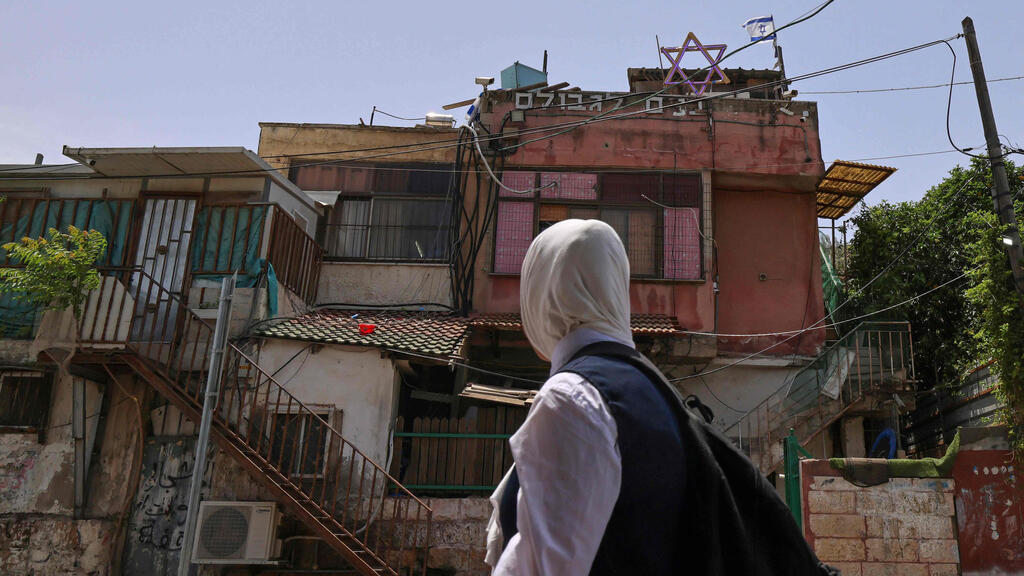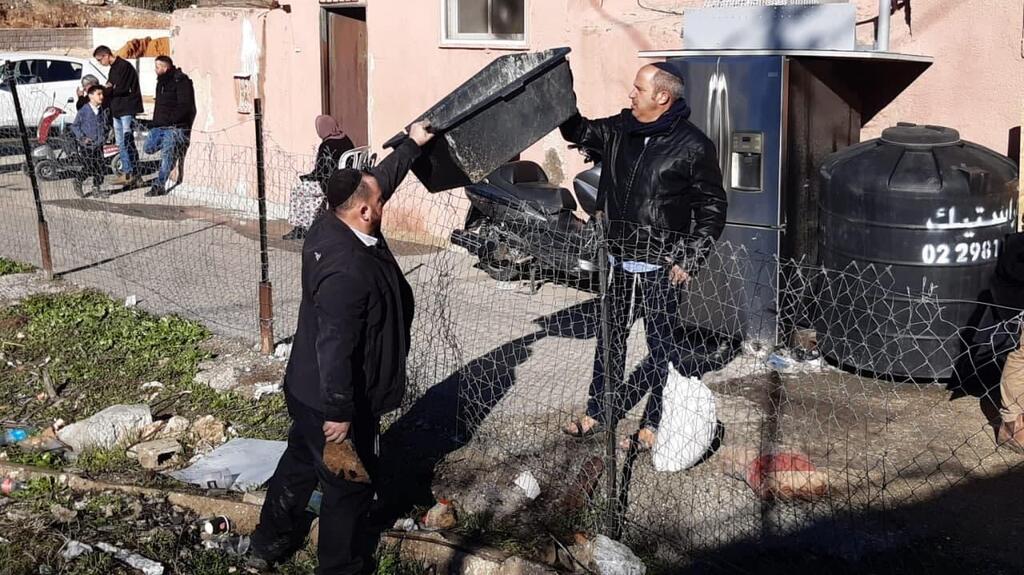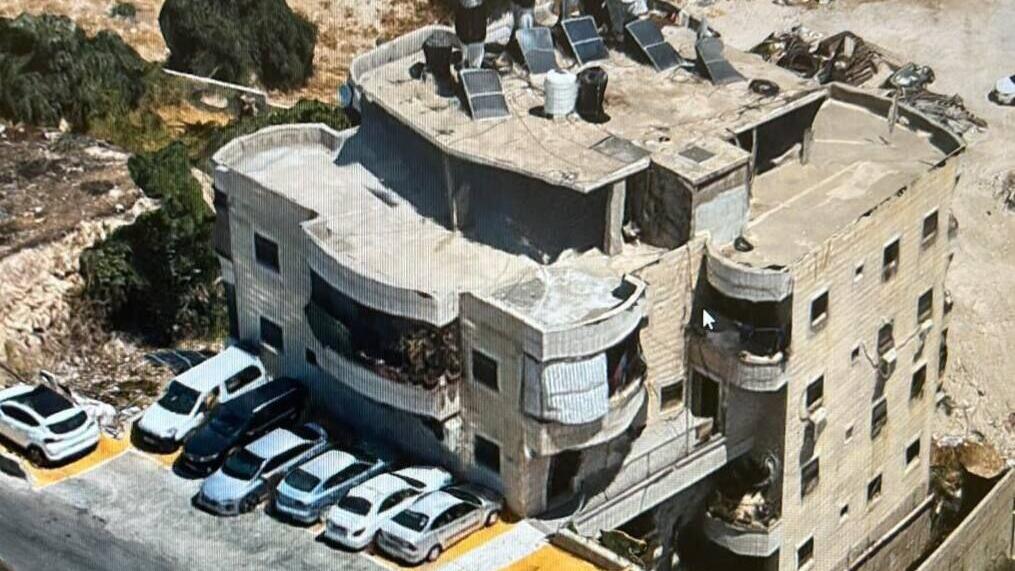Security authorities are planning to evict six Palestinian families from their homes in East Jerusalem during March – an unprecedented number that comes just ahead of the holy Muslim month of Ramadan and of Passover.
In recent years, tensions led to violence during this period of the year, due to visits of Jews to the Temple Mount and the restrictions placed on Palestinian Muslim worshippers.
The evictions were approved based on a ruling that Jewish families who owned property and land in East Jerusalem before 1948, could claim ownership over it after it was abandoned during the war of Independence.
In the neighborhood of Sheikh Jarrah, the Salam family, consisting of 11, is facing such an eviction.
Last year, the family appealed to the Jerusalem Magistrate’s Court which ruled in their favor, and returned the case to the Enforcement and Collection Authority for further consideration. A decision is expected by March 9. If the authority decides in favor of the property owners, the family will be evicted in the course of the month.
Yonatan Yosef, the legal owner of the property said, the Salam's were squatters who rely on legal proceedings to live in the property for free without paying rent.
“Just last year, we ignored threats and evicted a Palestinian family from a property in East Jerusalem. Threats were made, but nothing happened,” he said.
There are seven other families living in Sheikh Jarrah and facing eviction, who appealed to the Supreme Court in 2021. Their case led to a broad public debate and was at the center of the May 2021 riots.
In March of 2022, the Supreme Court partially accepted their appeal, froze the eviction orders, and gave them an opportunity to prove ownership of the properties with further deliberation set to take place at the end of March 2023.
In the Silwan neighborhood in East Jerusalem, 85 families totaling around 700 people are facing possible eviction. Among them is the 25-member Shhada family who reside in five houses.
In November 2022, the Jerusalem District Court ordered the family to vacate their homes by March 1 following an appeal made by “Ateret Cohanim,” a right-wing group working to bolster Jewish settlement in Arab neighborhoods of Jerusalem. In response, the family appealed to the Supreme Court, and if their appeal would be rejected, they would also be evicted.
In November 2022, the Jerusalem District Court ruled in favor of the eviction of the Sub-Laban family from their home in the Muslim Quarter in Jerusalem’s Old City and ordered them to vacate by January 2023. The Supreme Court recently rejected the family's appeal, and their eviction could take place on March 15.
The family purchased the house in 1954 when East Jerusalem was still under Jordanian rule. The family has fought against the eviction order with all legal means at their disposal.
Yehudit Oppenheimer, head of the Ir Amim organization working to encourage Jewish-Arab pluralism in Jerusalem, said that six families would lose their homes. "Losing your home, beyond the economic damage, leads to emotional distress and is detrimental to the family and the community," the activist group said.
"In the long run, the threat of eviction looms over entire communities in Silwan, Sheikh Jarrah, and the Old City, in which over 1,000 people are living, some of whom arrived in the area as refugees during the 1948 war, after being forced to leave their homes,” Ir Oppenheimer said. “They are at risk of losing their homes and their community, under a series of discriminatory laws passed by the Knesset,” she said.
"Beyond the territorial conflict and the humanitarian tragedy, these evictions if implemented, serve to increase tensions in Jerusalem during the month of Ramadan and make the situation worse for everyone in the area."
Eliram Elgrably, a real estate lawyer in Jerusalem, said that courts allowed the evictions of several families from properties owned by Jews prior to Israel’s establishment, in the city,
"The parties who acquired the rights to these homes are claiming ownership of them. Due to the complex reality in the eastern part of the city criticism over the possible eviction of families, court-ordered action has been postponed time and time again," he said.
“The plaintiffs demand that court rulings be enforced, while the tenants claim the law allows for selective enforcement. These claims have been rejected by the courts," he said.
"Every such case involves a legal process that spans many years and is decided by different courts and by judges who have different perspectives. Despite the delicate nature of the matter, we must view it as a property dispute that some parties are attempting to make political," he said.
In addition to the evictions, the demolition of an illegal building in the neighborhood of Wadi al-Qadum in East Jerusalem was also expected. The building houses 11 families, and its demolition was suspended last February under a directive from the Prime Minister's office.
But pressure put to bear by National Security Minister Itamar Ben-Gvir could reverse Netanyahu's decision.
On Sunday, a senior official in the police warned that the situation in Jerusalem is "highly explosive, with police officers stretched thin.”
He said that with forces stretched to their limit by mass protests of the government, additional friction in the E. Jerusalem neighborhoods would add pose an unnecessary burden.
As part of the preparations for the Muslim holiday, the police commanders have demanded the deployment of thousands of officers throughout the country, to be able to respond to any scenario, particularly in Jerusalem and the Temple Mount.
A police official said that overseeing the protests with forces positioned elsewhere in Jerusalem will be “a huge challenge.”






